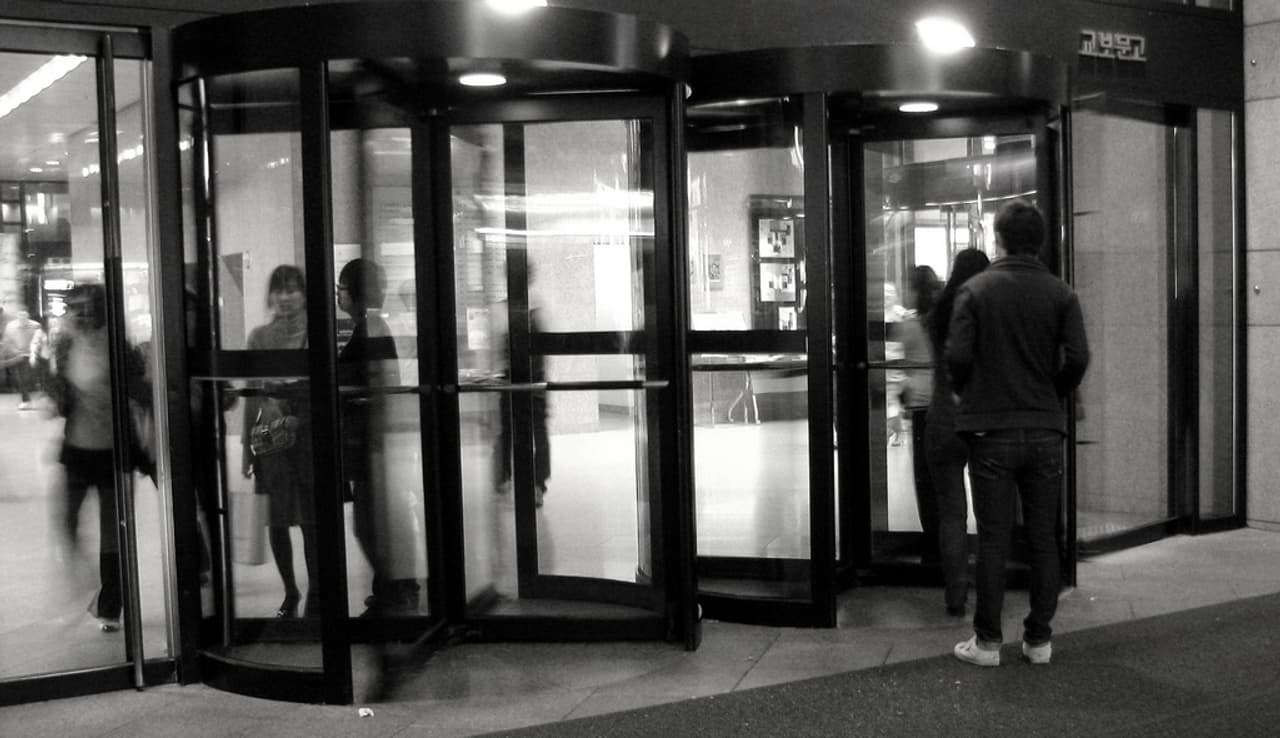
Lobbying: Calls for transparency over former MPs’ access to Parliament
Exposed: the revolving doors of Parliament
Dozens of MPs who left the House of Commons at the last election have taken jobs in organisations which are involved in lobbying and have been given passes that give them privileged access to Parliament.
Research by the Bureau, and published in the Independent, found around one in five of the 79 MPs who have applied for Former Member Passes after the 2010 election now work for companies or organisations with a possible interest in influencing current MPs. Several have done work for lobbying firms.
There are currently 326 former MPs who hold Former Member’s passes, allowing them to book restaurants with family in the Palace of Westminster, informally meet MPs and bring guests into the House of Commons. The current system was set up by the former speaker Michael Martin in 2004 as a means of allowing former MPs to keep up with friends in Parliament after they left.
But the system is open to criticism. The Parliamentary authorities keep no record of who they allow into Westminster or bookings made in their name – although the use of the passes for lobbying is explicitly forbidden.
Unlike serving MPs, journalists, and Parliamentary support staff that also have access to Parliament there is no need for the former MPs to declare their business interests.
There is no suggestion that any of those former MPs who hold ex-member passes have misused them in any way – but there is a lack of transparency about the outside interests of those who hold them.
Read all the Bureau’s work on Lobbying.
Last night Labour called for a register of interests to be established for ex MPs with passes in response to the Bureau’s findings.
Former MPs
Among those with ex-member passes who left at the last election are former ministers including Alan Milburn and Patricia Hewitt.
Mr Milburn, who set up AM Strategy before he left Westminster to handle his ‘media and consultancy work’, has also worked for PepsiCo, Bridgepoint, and Lloyd Pharmacy, according to the Register of Members Interests when he was still an MP.
However, since he left the House of Commons in 2010 there is no record of his private business work despite the fact he still has access to parts of Parliament.
Last night Mr Milburn said he was now a ‘private citizen’ and did not want to comment on the issue.
The former Health Secretary Patricia Hewitt is now chair of the UK India Business Council and is also on the board of Eurotunnel.
Before she left the Commons she was recorded describing to undercover reporters the ways in which ministers could be lobbied. Yesterday attempts to contact her through the UKIBC failed.
Another former minister Richard Caborn now works on behalf of high value UK manufacturing – promoting their interests to ministers, Whitehall and Parliamentarians.
He said there was nothing wrong with having an ex-MPs pass but backed moves to makes the system more transparent.
‘I am very proud of what I do and would have no problem at all with lobbying on behalf of our high tech manufacturing industry,’ he said. ‘But I would back moves for a register as it would make things more transparent.’
Related story: Former MPs – where are they now?
Another MP who left Parliament in 2010, who still has access to the House of Commons is Andrew Dismore, a former Labour MP who is the co-ordinator of the Access to Justice Action Group.
AJAG is campaigning against the Government cuts to legal aid and is partly supported and funded by the legal industry.
On the business connections website LinkedIn Mr Dismore promotes himself as ‘an expert on parliamentary procedure especially promoting and blocking Private Members’ Bills.’ He adds that he has a ‘detailed understanding of how to influence government and parliamentarians.’
Last night Mr Dismore said he had not done anything wrong, was entirely open about his involvement with AJAG and would also welcome the establishment of a register. ‘I believe the more transparency the better. In fact when I applied for the pass I asked if there was a register and was told there wasn’t one which surprised me.’
Another passholder is Nigel Waterson, the former Conservative MP for Eastbourne, who was listed as a consultant for the lobbying firm Butler Kelly on the August lobbying register.
When contacted through Butler Kelly he said: ‘I am careful to follow the House rules about not using my pass when visiting the house in a lobbying capacity.’
His former Parliamentary colleague the Labour MP Parmjit Dhanda is also listed as a consultant for Butler Kelly. He also had a pass after the election but has subsequently given it up.
Among other members who left the House of Commons in 2010 who are listed as having ex members passes are Jane Kennedy who was listed on the August APPC register as a consultant. Ms Kennedy said it had been in connection for some work she had done on High Speed Rail.
She said she had never used her pass for business purposes. ‘I use it mostly for seeing friends apart from during the No2Av campaign and I make no apology for that. But I have never used it for business purposes.’
Official meetings between departmental ministers and lobbyists would usually be registered in the hospitality records of governmental department.
However, parliamentary passes allow holders access to various sites within parliament, including three restaurants they can book for lunch on varying days of the week.
Related story: Members’ Passes explained
Lifetime privilege
Some MPs with passes have not been MPs for over 20 years.
Geoffrey Lawler, the former Conservative MP, was left parliament back in 1987 and went on to found The Public Affairs Company, a government and parliamentary relations consultancy. He is also on the board of Directors of Keene Public Affairs and still holds a Commons pass.
On their website clients of the Public Affairs Company tell of the agency’s success stories. The engineering group PM Group Plc said, ‘Your strategy gave politicians the confidence in our case needed to bring about policy change. Your expertise helped turn the political tide in favour of our case.’
Last night Mr Lawler said: ‘When I have to go into Parliament for any reason to do with my work I do not use my former member’s pass, but get a visitor’s pass.’
Need for transparency
Last night, Jon Trickett, the shadow Cabinet Office Minister, said: ‘Lobbying in itself is not wrong but it needs to be done in an open transparent way. I believe ex-MPs who have access to Parliament should declare their outside interests in a register – like MPs and others who work in Westminster already do.’
Tamsin Cave from the Alliance for Lobbying Transparency told the Bureau: ‘Lobbyists trade on their insider knowledge and privileged access. The industry is riddled with ex-MPs, ministers, civil servants, advisers and former colleagues. A Parliamentary pass gives privileged access to politicians, which means that many are free to roam around Parliament, brushing shoulders with politicians, having a quiet word in their ear, away from public scrutiny. This must not be allowed to continue.’
A spokeswoman for the Commissioner for Parliamentary Standards John Lyon said: ‘The commissioner is looking into the rules around lobbying next year and this maybe something which he wishes to consider.’




